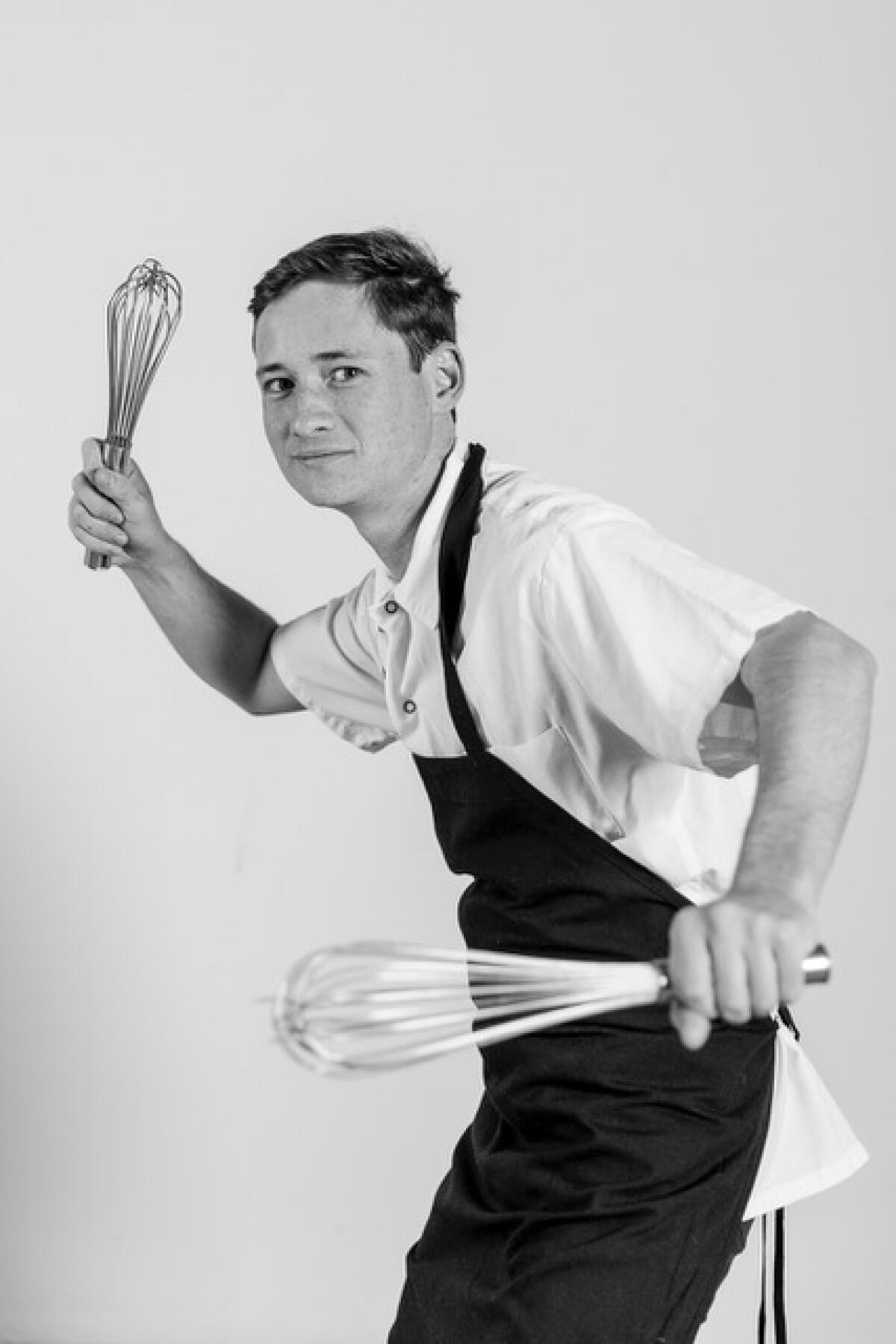Commentary: Remembering Blaze Bernstein, in life

Here is a scene: ABBA the Museum, Stockholm, Sweden, June 2017. On the museum’s hologram-stage, the ’70s pop group’s singers are joined by a fifth member, Blaze Bernstein. They stand side by side, shuffling back and forth to the beat of “Mamma Mia.” The theater is dim, the stage backlit by pink and blue spotlights. The four original band members, clad in white bodysuits, are each at least a head taller than Blaze, who wears a red long-sleeved shirt, dark pants and white sneakers. Blaze does his best to keep time with the faded figures, but he shuffles right when his counterparts shuffle left. He rushes to sync up, a half beat behind.
This performance, immortalized on Blaze’s Instagram and reposted on his sister’s soon after his death by homicide in January 2018, is classic Blaze. The criminal trial, now scheduled to begin April 8, 2024, was originally expected to open April 27, 2022. A painful coincidence, April 27 would also have been Blaze’s 24th birthday.
As the trial against Blaze’s accused murderer, Sam Woodward, a former Orange County School of the Arts classmate unfolds, news coverage will focus on the awful details of his death. But there is so much to remember about who Blaze was beyond what happened to him in Foothill Ranch that horrible night. In death, we cannot forget life.

Back to the ABBA performance: Was he joking or was he serious? Well, both. Blaze took his jokes seriously. As his college advisor, there were times when I missed his deadpan completely, and I pride myself on my sense of humor. His comedy took many forms. He stole the show at a Halloween party dressed as Penn’s president Amy Gutmann. He once published a poem under the pen name Kirk Gingle. His love of LaCroix seltzer was widely known, so deep that he’d mused about tattooing an image of a can on his thigh. (When we memorialized Blaze on campus the month after his death, his friends asked me to get LaCroix temporary tattoos to distribute. Unfortunately, due to an Etsy snafu, they never arrived.)
Blaze was also known for sincerity: He didn’t shy away from critique when he believed it was warranted, even if it meant calling out a classmate, a roommate or an administrator. His fellow literary magazine staffers prepared for debates with him over submissions and knew that in arguing with Blaze, they’d learn something. I remember one student saying that Blaze taught him how to read a poem. Blaze couldn’t stand that his freshman hallmates would take over the common room all day on Sundays to watch football. He hated the “Will & Grace” reboot. He spoke up when one of his people was wronged. In my office, we discussed what the sciences could take from the pedagogy of the humanities and what the humanities could take from the pedagogy of the sciences, and where academia fell short overall.
His praise was as deeply felt as his criticism. Blaze thanked people regularly, his friends for their presence in his life, and me as he navigated through a rigorous course load and the uncertainty that comes with being skilled across disciplines. It was hard for him to narrow his options because he was genuinely interested in — and good at — so many things: psychology, medicine, chemistry, writing. He worked with younger writers with care. He helped his teachers get the discussion going in class. When there were no seats left at a meeting, he left his own chair and joined his friend on the floor so she wouldn’t sit alone. He went on boba dates with his little sister. He developed close friendships with several guys he first met through a dating app.
And the food. Blaze was known at home and at school for cooking late into the night, for the Frank Sinatra soundtrack that would accompany him in the kitchen. He obsessed over sourdough starter with a friend. His kombucha scoby is alive and well in Philadelphia today. He made cranberry upside-down cake and pineapple upside-down cake, turkey Bolognese and vegan, gluten-free mac & cheese. What he cooked depended on who he was cooking for. He fine-tuned his own recipes, including one for chocolate chip banana bread that was published in the campus food magazine’s cookbook. On the last night of his life, just after New Year’s, he made a complex Thanksgiving dinner-caliber meal for his family. His mother still keeps some of the leftovers in the back of the freezer.
When we grieve, it is easy to get caught up in the particulars of death: in how it happened and how we reacted, in what we know and what we don’t, and in cases like Blaze’s, in whether justice will be served or if justice exists. This is all understandable and allowed. But none of us should be remembered only for the worst thing that happened to us.
“May his memory be a blessing” is the common condolence in Jewish culture. This felt unreachable, unbearable in those early weeks of mourning Blaze. While the pain of this loss will always remain, for me Blaze’s memory now mingles with the joy of a good meal, the enlightenment of a brilliant poem, and the hilarity of singing along to a ’70s Europop classic.
In the Instagram video from ABBA the Museum, just when it seemed like Blaze was helplessly off, it came together. At the chorus, he snaps into sync with the Swedish stars, planting his feet shoulder-width apart and facing the audience. He points forward with confidence. Blaze’s family’s laughter swells, his mother’s the loudest. Then, he turns to his right to face the guitarist and they sing:
“Mamma mia, does it show again? My, my, just how much I’ve missed you?”
Jamie-Lee Josselyn is the associate director for recruitment at the University of Pennsylvania’s Center for Programs in Contemporary Writing.
Updates
12:48 p.m. April 3, 2024: This commentary, originally published in April 2022, has been updated to reflect the trial set to begin April 8, 2024.
12:40 p.m. April 20, 2022: The story has been updated to reflect a new trial date.
All the latest on Orange County from Orange County.
Get our free TimesOC newsletter.
You may occasionally receive promotional content from the Daily Pilot.



